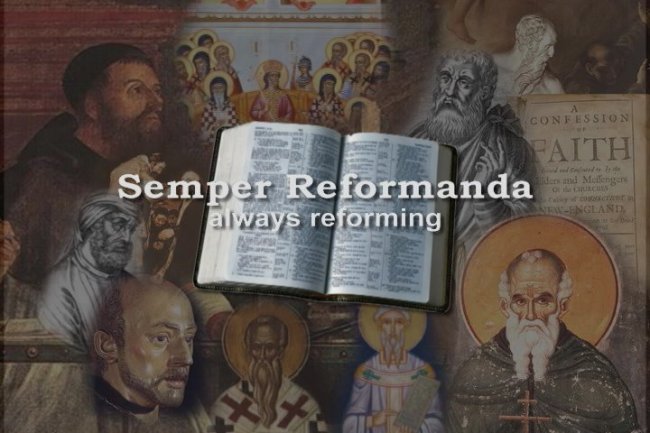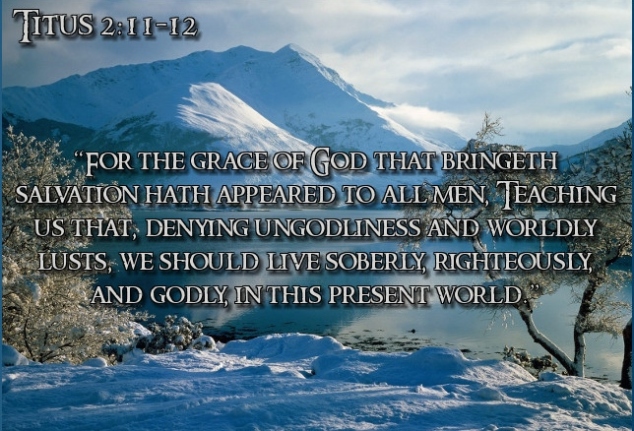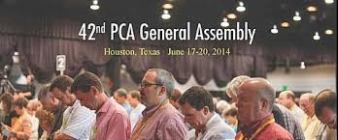note: Click on the blue texts for links.
If anyone is interested, I first was drawn to this issue of Republication and the Mosaic Covenant as a person who was a Reformed Baptist for 30 years. I had strong leanings toward Reformed Theology. It took me a long time but I finally started to understand the differences between Reformed thought and Reformed Baptist thought. Reformed Baptists hold to a view that the substance of the Mosaic Covenant is not an administration of the Covenant of Grace but that the Mosaic Covenant administers the Covenant of Grace along with a Covenant of Works. It is a view that is similar to that of Samuel Petto, John Owen, Fred Malone (a modern day switcher) and somewhat similar to that of a recent Orthodox Presbyterian Professor of Great Influence at Westminster Theological Seminary West (not Philadelphia) even after death, Meredith G. Kline in his later days. The Kline who wrote the book ‘By Oath Consigned‘ was not the same theologically as the Kline of ‘Kingdom Prologue’ many years later as is noted by Mark Karlberg . He seems to have taken on a more Lutheran Theology the Reformers of the Westminster Standards understood.
The Charge of Lutheranism is not about distinction, it is about dichotomy
Lutheran / Reformed differences recognized during the time of the Westminster Divines
As a Reformed Baptist, whenever I would debate issues concerning church membership and baptism I viewed the Mosaic Covenant and the New Covenant to be different substantially. Since the New Covenant was purely an Administration of the Covenant of Grace it had a different membership make up than the Mosaic Covenant. The New Covenant membership was made up of those who were truly regenerate or Elect.
London Baptist Confession of Faith 26.1.
The catholic or universal church, which (with respect to the internal work of the Spirit and truth of grace) may be called invisible, consists of the whole number of the elect, that have been, are, or shall be gathered into one, under Christ, the head thereof; and is the spouse, the body, the fulness of him that filleth all in all.
The Old Covenant membership was a mixture of unregenerate and regenerate as the Mosaic Covenant was a mixed Covenant. The Mosaic Covenant administered both the Covenant of Works and the Covenant of Grace as a stand alone Covenant.
Reformed Baptists view Covenant Theology somewhat similar to that of Johannes Cocceius from what I understand. Covenant Theology was progression from a full blown out Covenant of Works that slowly faded away through the progression of Redemptive History as the Covenant of Grace took over and found its fulfillment in the coming of the Second Adam (Jesus Christ) in the New Covenant.
For the life of me I couldn’t understand why Dr. Clark and other Presbyterians weren’t anti-paedobaptists since they held to a position very similar to the Baptist position. That position is that the Old Covenant and New Covenant are substantially different. It seemed they believed the Mosaic was a Covenant that administered both the Covenant of Works and the Covenant of Grace making it different in substance from the New Covenant. I understood that they claimed succession of the Covenant of Grace from Abraham but I thought that was a bit of a stretch since God also required the same obedience of Abraham as He did from Israel in Genesis 17:1,2. (side note. For a good concise understanding about this from a Reformed perspective look here.)
In 2007 Rev. Winzer tried to help me understand the issues concerning administration but I didn’t understand what he meant by the Mosaic being an administration of the Covenant of Grace. I was too dispensational in my thinking. And Dr. Clark wasn’t helping me understand it since he held to a view very similar to Kline’s later views along with those of a few minority Divines of the past such as Samuel Bolton who joined the Westminster Assembly after Chapter 7 was already written. I believe he learned this particular view from a Divine named John Cameron.
Then we started having Law / Gospel discussions on the Puritanboard. Those got rather heated but I had a different view of Grace that was closer to the Majority view of the Divines. I believe that view is stated well by Samuel Rutherford.
The obedience of faith, or Gospel-obedience, in the fourth place, hath less of the nature of obedience than that of Adam, or of the elect angels, or that of Christ’s. It’s true we are called obedient children, and they are called the commandments of Christ, and Christ hath taken the moral law and made use of it in an evangelic way, yet we are more (as it were) patients in obeying gospel-commands. Not that we are mere patients, as Libertines teach; for grace makes us willing, but we have both supernatural habits and influences of grace furnished to us from the grace of Christ, who hath merited both to us; and so in Gospel-obedience we offer more of the Lord’s own and less of our own because he both commands and gives us grace to obey. And so to the elect believer the Law is turned into Gospel, he by his grace fulfilling (as it were) the righteousness of the Law in us by begun new obedience, Rom. 8:4. Samuel Rutherford (The Covenant of Life Opened, 198-199).
The justification / sanctification discussions started to get heated up around 2009 and they started to escalate more after 2011 in my estimation. I also noticed that this debate had to do with the same hermeneutical issue concerning the Mosaic Covenant. Men were dichotomizing Law and Gospel (Grace) as the Lutherans did and not truly understanding the differences between the Reformed and Lutheran view of Law and Gospel. We were both using the term distinctions about Law and Gospel but when Klineans were using the terminology it was a dichotomy instead of a mere distinction. I explain that in one of my blogs.
Then the Natural Law / Two Kingdoms issue (Radical Two Kingdom in some critics thoughts) started to rear its head up and it also had to do with the same root issue of Law / Grace. Thus its root in my estimation goes back to the hermeneutic some Professors are using that is more Lutheran than Reformed concerning the Covenant of Grace and the Mosaic Covenant.
I started to discuss this issue with some of the other leadership on the Puritanboard as my views were becoming more focused and I realized I wasn’t a Reformed Baptist any longer. I believed that the Mosaic Covenant and the New Covenant were the same in substance as they were administrations of the One Covenant of Grace. I fully agreed with WCF chapter 7. It wasn’t hard for me to change for a lot of reasons. I was already a member of the RPCNA back in the mid to late 80’s and had returned back to that Congregation. I had also been a member of a PCA Church Plant before I returned back to the RPCNA. For some reason the light bulb just didn’t turn on for me until 2011. I can’t explain it except I had been so indoctrinated as a Reformed Baptist that I couldn’t understand the terminology of my Reformed brothers.
So after much time waiting to openly confess my change (as I was counseled to do) I posed this question on the Puritanboard. It was the beginning of my open confession as I was learning. Are Kline and Karlburg Not Confessional Concerning the Mosaic?
http://www.puritanboard.com/f30/kline-karlburg-not-confessional-concerning-mosaic-69258/
I also made this post on the Puritanboard Blog area to start helping others understand why I was becoming a Reformed Theologian instead of a Reformed Baptist. I ended up starting my own personal blog and moved it there.
These are some of the reasons I started to pursue this issue and this is where it has lead me thus far. I am not one who has had many changes in my theology since I became a Christian. I actually was born a Calvinist and didn’t know it. You can read about it here. I wasn’t even a classical Scoffield / Darby dispensationalist which was the eschatological view that many of my friends in the Navigators held to. I was Premil for a short time but I shortly became an Amil with a Positive bent when I started learning about the differences. I have had a lot of growth over the past 33 years but not a lot of Theological shifting as some people experience.
Well now you all might have some understanding about why I have pursued this. I also want you to know that I have not pursued these issues apart from counsel and apart from being under authority. I keep close to my Elders and listen to them and I listened to the Leadership of the Purianboard who has placed a lot of trust in me as a Moderator. I have not acted as a Lone Ranger who has been out to correct and purify the Church because I am right and everyone else is wrong. I am a man under authority. I am a sinful man who needs the counsel of my Elders and Leadership and I have tried to be faithful in obeying them. They have had to reel me in a few times in the past few years also. They have helped me to keep it between the lines the best they can and I am most grateful for them and their work. I truly believe Hebrews 13:7, 17. There is blessing in submission.
Heb 13:7 Remember them which have the rule over you, who have spoken unto you the word of God: whose faith follow, considering the end of their conversation.
Heb 13:17 Obey them that have the rule over you, and submit yourselves: for they watch for your souls, as they that must give account, that they may do it with joy, and not with grief: for that is unprofitable for you.
In my estimation I found that the particular view of Republication that Popular Modern Reformed Teachers are holding to (Michael Horton, Bryan Estelle, David Van Drunen, R. Scott Clark, etc.) and their view of the Mosaic Covenant to be out of bounds. It effects the doctrine of Christology (His Kingship and authority, Two Kingdom / Natural Law), Soteriology and how the Gospel is defined (ie. Justification is overemphasized and sanctification denied leading to a form of antinomianism possibly.), and the doctrine of Union with Christ has been debated due to this.
This teaching has a hermeneutic with fingers that reach into many different areas of theology. So I have tried to understand it the best I can. I am sure I still have much to learn. So I will keep on trying.
Be Encouraged,
For the peace and Unity of the brothers.
Be Encouraged dear Elders and brothers in Christ,
Randy Martin Snyder
“Our object should not be to have scripture on our side but to be on the side of scripture; and however dear any sentiment may have become by being long entertained, so soon as it is seen to be contrary to the Bible, we must be prepared to abandon it without hesitation.”
William Symington







